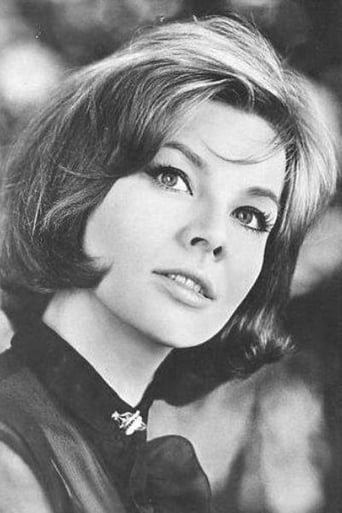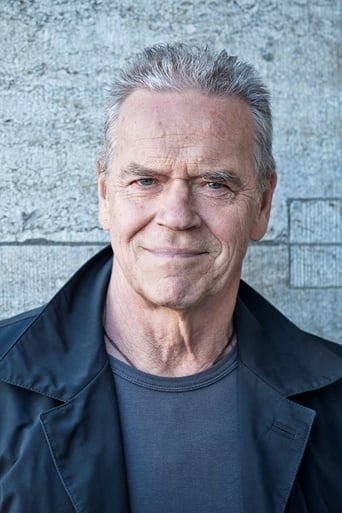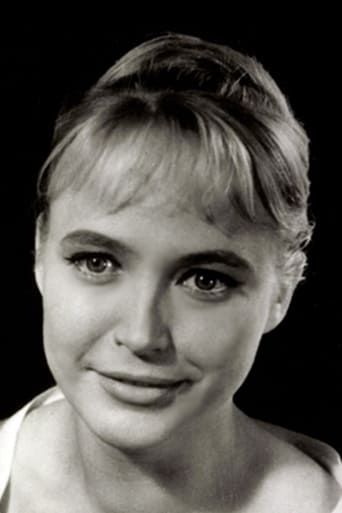Cubussoli
Very very predictable, including the post credit scene !!!
Stevecorp
Don't listen to the negative reviews
ShangLuda
Admirable film.
Billy Ollie
Through painfully honest and emotional moments, the movie becomes irresistibly relatable
suchenwi
This East German movie was designed to be a blockbuster: with popular music (most notably: Nina Hagen in a live concert), and nudity as never seen before in East German films (well, those were the days - Kentucky Fried Movie (1977) also had parts that couldn't be remade today). And a blockbuster it was, selling a million tickets in six weeks in that relatively small country GDR.But there's more to it - good that Super-Illu redistributed it this week. It's a love story alright, but with hardly any schmaltz or romance. Jette (lovely Annekathrin Bürger, acting in movies since 1956) is a Hostess (tourist guide) in East Berlin. Living for two years with auto mechanic Johannes, a quarrel breaks out when he informs her that they are going to marry. Jette moves out, and goes on a small odyssey to explore the peculiarities of love.First she returns to her one-room apartment with colleague Conny, only to find that Conny is involved with a sailor, so Jette leaves again (to find out later that the sailor is more interested in her than Conny). Next stop: her admired brother, married, with kid, where she can sleep on the sofa. However, the problems of that marriage all too soon become evident. At times, everybody's heart is broken. Once, Jette and Conny debate the merits of sexual intercourse starting from a novel quote where God is described as black-humored for having high-minded humans procreate in such low-down ways - deep yet hilarious. Another bitter-funny moment is when she explores the 16-years marriage of her boss.Peter, a very old flame, reappears, and it looks like first love can be remade (but, as Jette says, it of course can't). Johannes has invited another woman to his place, yet keeps looking for Jette. In the end, she returns to his apartment and remodels the place - without knowing when (or whether) Johannes will return.Besides this skeleton plot, I found most amazing the real-life way people talked to each other, and the exploration of four different living-rooms (Johannes', Conny's, her brother's and Peter's). And daily life in East Germany was frequently featured: corruption in auto repair and apartment deals ("8-10 thousand East marks for a flat with Western wallpaper and plumbing"), absurd propaganda and subtle management-employee relations in the work place, alcohol as frequent relief measure. And many nice takes of East Berlin as it was in 1975.I liked this old "chick flick", even more on second viewing (better, for me, than Woody Allen's Manhattan :^). At least for its historic value to show a bygone era, but also for the realism in dialogs. 8/10.
James Tobias
While my German is still a work in progress, I recently saw this film on German TV, and found it really interesting. It reminded me a bit of Moscow Does Not Believe in Tears, in that it's a 1970s "women's film" that deals with questions of personal identity versus national identity, friendship versus sexual relationships, and women's and men's respective, and changing, roles.And while much of the film reads (at least to me) as camp today, at the same time, there are some really interesting bits. First, it has a number of montage sequences showing East Berlin in the 1970s, which are amazing to look at today, now that, 16 years after re-unification, these neighborhoods have changed drastically. Second, the protagonist's subjectivity -- her interior conflicts, memory "flashbacks," and emotional responses to changes in her life -- are often communicated by montage sequences where all kinds of different techniques are used. For example, there are fantasy sequences which are represented clearly as "a theatre of the mind," with stage-show like staging and dramatization, while other cut-away sequences use montage-type techniques in a more properly "cinematic" style. I'd guess that these are intended as "Brechtian" gestures, and because Brecht is so often mis-represented in "Western" drama and cinema, I'd like to know more about this possibility.Finally, the soundtrack, with songs by Veronica Fischer and Nina Hagen, is amazing.I've checked a DEFA catalog that I get in the mail regularly, but this hasn't been re-released, at least in the U.S. distributors' catalogs, as far as I can see. In any case, it's a great time capsule that presents issues that are still relevant; I'd love to see an English-subtitled version.



